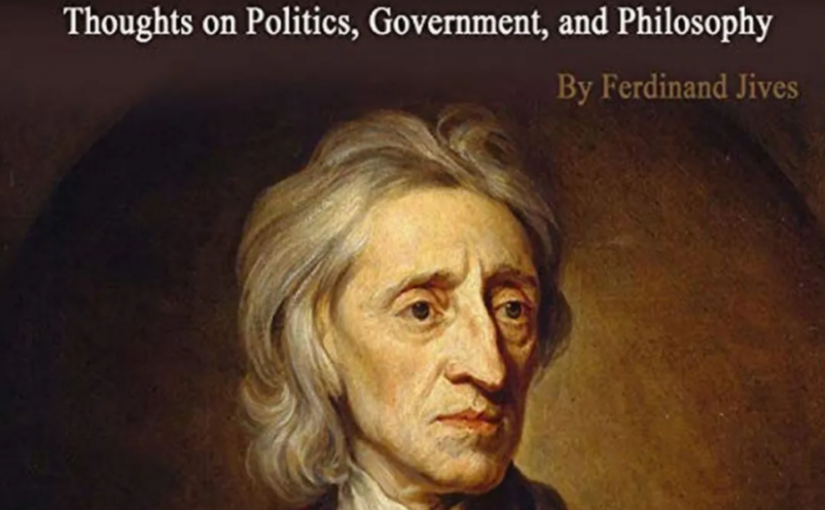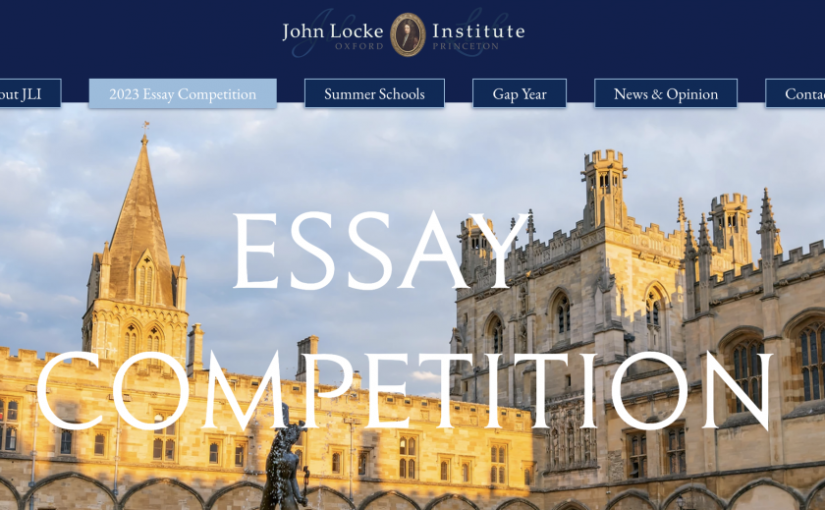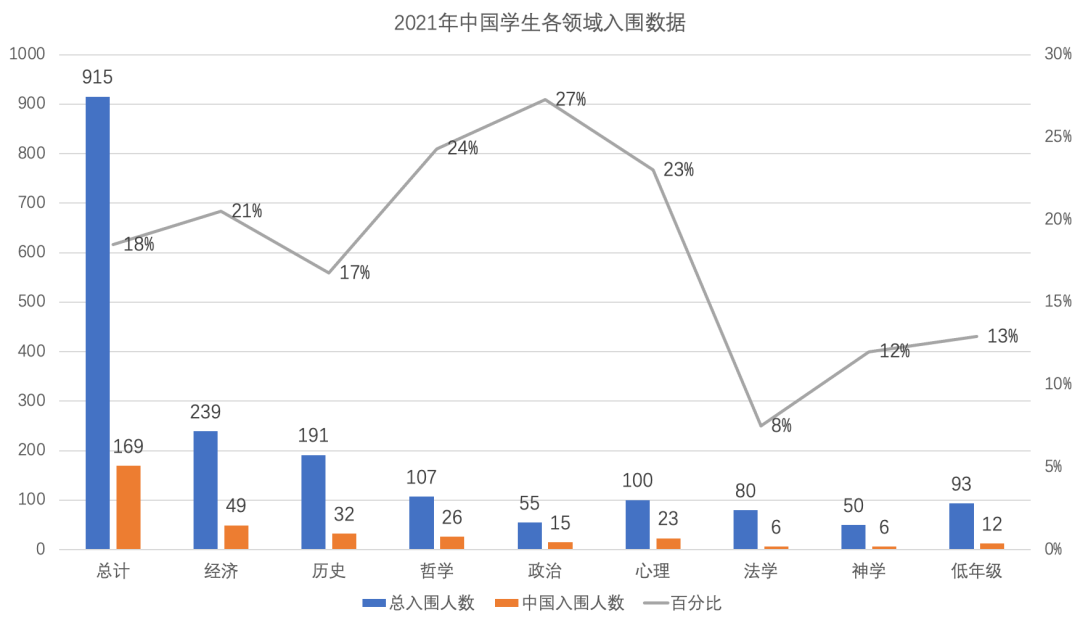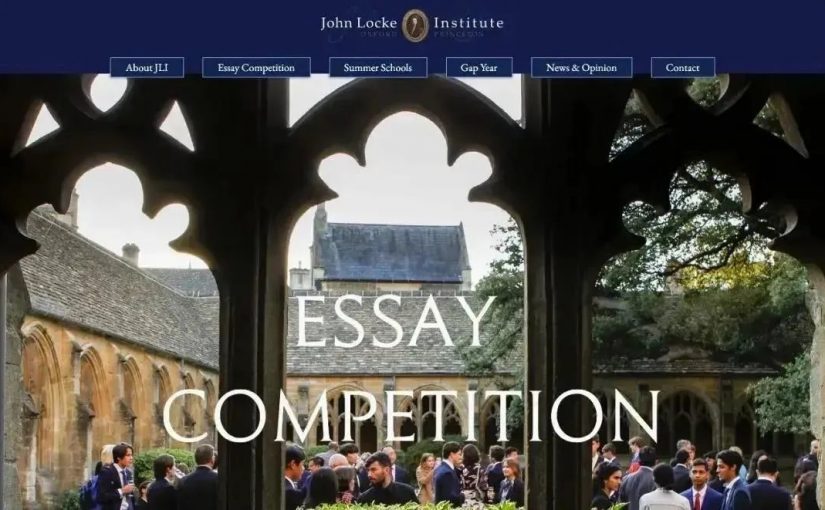参与John Locke论文写作竞赛的学生将面临一系列具有挑战性和学术价值的主题。他们需要以扎实的学术功底和独立的思考能力,撰写一篇论文来探讨和回答这些主题。评审团由来自英国牛津大学的教授们组成,他们将对学生的论文进行细致的评审,并提供宝贵的意见和建议,帮助学生进一步完善他们的作品。
John Locke 关键时间点:
论文提交截止日期:2023 年 6 月 30 日
延迟提交截止日期:2023年7月10日(6月30日之后提交的需支付20.00美元的延迟费用)
入围散文家公布时间:2023 年 7 月 31 日
学术会议和颁奖晚宴:2023 年 9 月 16 日John Locke
竞赛规则
参赛对象:2023年John Locke Institute论文竞赛对所有国家的学生开放,旨在鼓励全球青年学生探索哲学、政治、经济、历史和文化等领域,提高他们的批判性思维和写作能力。
参赛人年纪必须在2023年6月30日时小于或等于18岁。此外还设有专门的少年组,年龄小于或等于14岁的青少年也可以参加。
参赛费用:参加比赛是不收费的。但是,如果在正常的截止日期后提交文章,将会收取20美元的迟交费用。
论文要求:每篇论文必须只针对主题类别中的一个问题,并且不得少于2000字(不包括图表、数据表格、脚注、书目或作者声明)。
扫码获取报名表
免费领取John Locke历年作品集

参赛意义
参与John Locke论文写作竞赛的学生将面临一系列具有挑战性和学术价值的主题。他们需要以扎实的学术功底和独立的思考能力,撰写一篇论文来探讨和回答这些主题。评审团由来自英国牛津大学的教授们组成,他们将对学生的论文进行细致的评审,并提供宝贵的意见和建议,帮助学生进一步完善他们的作品。
John Locke论文写作竞赛的目的不仅仅是为学生提供一个独特的学术体验,还旨在培养和激发学生的创造力、思辨能力和批判性思维。通过参与这个项目,学生将学会组织思路,展示自己的观点,研究和分析复杂的问题,并以清晰、准确的语言进行表达。这些技能不仅对他们在大学学习和职业发展中至关重要,而且对于塑造他们作为全面发展的个体的意识和能力也具有重要意义。
John Locke论文写作竞赛的影响远远超出了学生个人的成长。通过鼓励学术探究和批判性思维,该项目为全球的教育体系提供了一种优秀的模式,并为培养未来的领导者和创新者奠定了坚实的基础。
John Locke论文写作竞赛是一个具有重要意义的学术项目,它通过与英国牛津大学等学府的合作,为全球思考能力卓越的中学生提供了一个展示才华、锻炼思考能力的平台。通过参与该项目,学生不仅可以提升自己的国际大学申请竞争力,而且可以培养批判性思维、创造力和表达能力。这对于学生的个人发展和全球教育的进步都具有重要意义。










